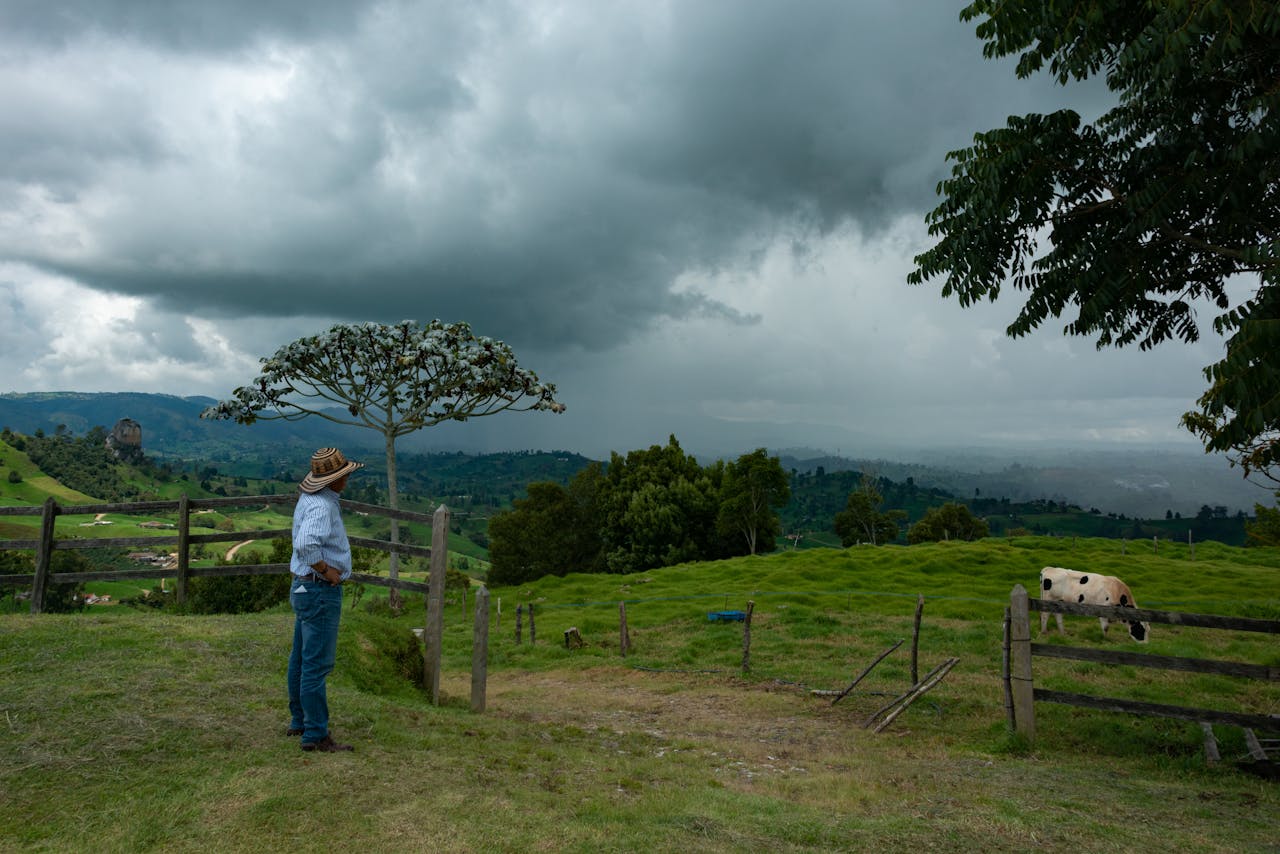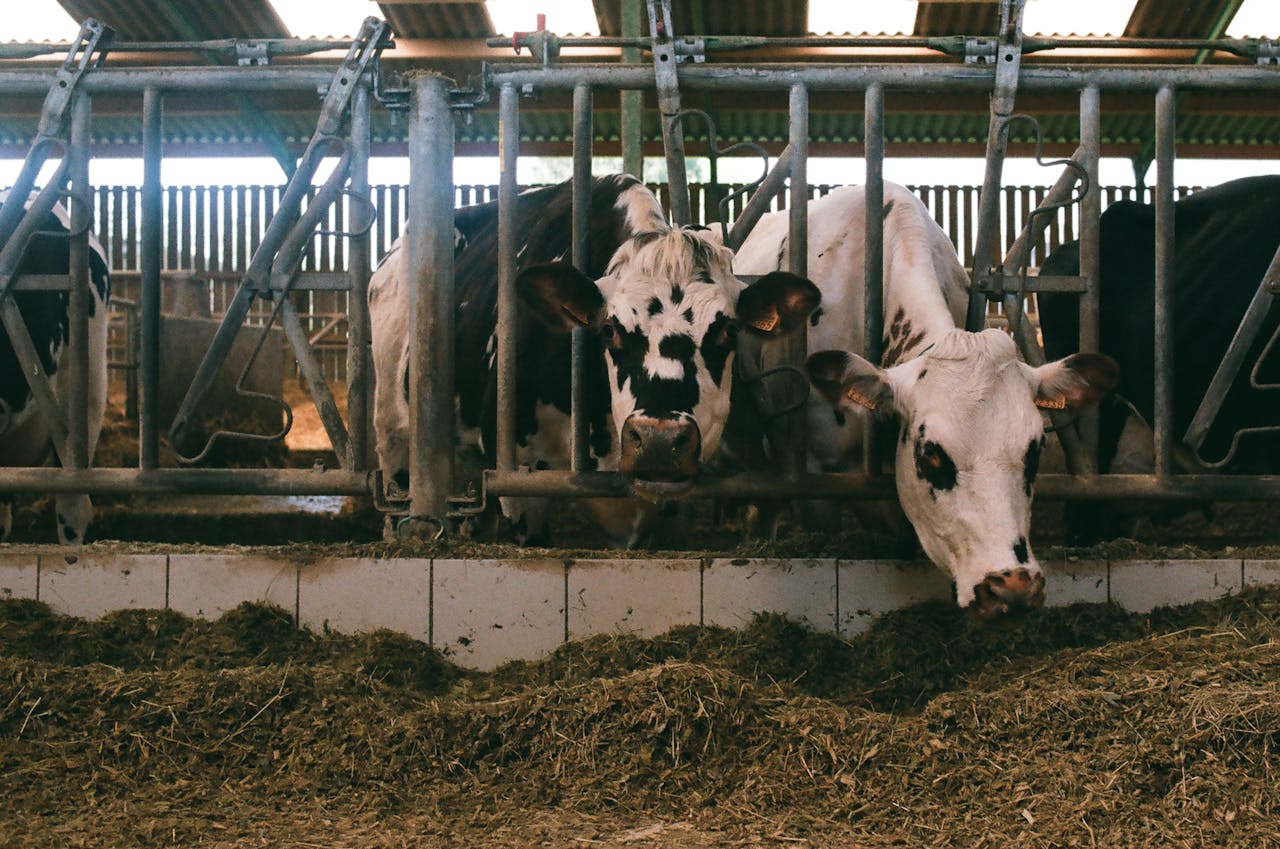This summer, the UK was officially recognised by WHO as negligible risk for classical BSE, capping nearly 40 years of work largely focused on transforming feed practices. From the initial bans on meat and bone meal in ruminant feed to ongoing feed testing and surveillance, animal nutrition and feed safety have been central pillars of the fight against BSE – a fight that restored confidence in both the UK’s livestock industry and its food exports.
Decades of Scientific Effort
The announcement by the World Health Organisation (WHO) was the culmination of nearly 4 decades of scientific work in the UK, much of it led by the UK’s Animal and Plant Health Authority.
WOAH’s recognition of the UK as negligible risk for BSE is a significant milestone and is a testament to the UK’s strong biosecurity measures and the hard work and vigilance of farmers and livestock keepers across the country who have all played their part in managing the spread of this disease.” — Christine Middlemiss, UK Chief Veterinary Officer
Origins of BSE crisis
BSE was first spotted on a cattle farm in Sussex in 1984, but it was only confirmed in 1987. The neurodegenerative disease, caused by the feeding of meat and bonemeal to cattle, affected more than 36,000 farms, and was in 1996 linked to new variant Creutzfeldt Jacob (vCJD) in humans.
At its peak in 1992, around 36,000 cases were reported and in total there have been 181,135 cases.
A public health emergency
The disease, caused by abnormal proteins called prions, which affect the brain and spinal cord, not only reshaped farming practices but also had major implications for international trade, food safety and public health.
Timm Konold, Transmissible Spongiform Encephalopathies (TSE) lead scientists at APHA, has played a major role in tackling BSE and earning the UK a clean bill of health.
Strict feed regulations enacted
Konold, who has worked on BSE for many years, said he was proud to reflect on the journey that has brought the UK to negligible risk status, and the work that continues to ensure the county never returns to the crisis of the past.
Konold said the link to vCJD turned the agricultural issue into a public health emergency. “The UK responded with sweeping legislative changes, including a ban on feeding meat and bonemeal to ruminants, later extended to all farm animals.
“These measures were essential to halting the spread, but the road to recovery was along. For scientists and veterinarians, BSE became a defining challenge – one that demanded innovation, vigilance and resilience.”
For many of us, this achievement is not just professional, it is personal. We have lived through the challenges of the BSE epidemic and worked tirelessly to overcome them. As we look ahead, our commitment remains unwavering: to protect animal and public health, uphold our international reputation, and ensure that the lessons of BSE continue to guide us.” — Timm Konold, TSE Lead Scientist, APHA
APHA’s central role
APHA serves as both the National Reference Laboratory and a WOAH Reference Laboratory for BSE. This designation means it:
- Provide expert advice and confirmatory testing for suspected cases.
- Develop and validate testing methods to ensure accuracy and reliability.
- Contribute to international standards and guidance on BSE surveillance and control.
- Support global knowledge exchange, including training and collaboration with other countries.
This role reflects APHA’s scientific leadership, and the trust placed in our expertise by both UK government and international partners.
Collaborative national response
Konold said the journey to negligible risk status was a cross-government effort led by Defra, with APHA playing a pivotal role. Our One Health team coordinated the Agency’s contribution, drawing on expertise from colleagues across the transmissible spongiform encephalopathy and animal by-products portfolio. The application process involved months of intensive work – collating, drafting, reviewing and validating technical content in line with WOAH’s requirements.
What does negligible risk status mean?
WOAH classifies countries based on their BSE risk as negligible, controlled, or undetermined. Achieving negligible risk status means the UK has demonstrated:
- Effective and sustained control measures.
- No indigenous cases of classical BSE in animals born after the feed ban.
- A robust surveillance system that meets international standards.
This status is more than symbolic, it reflects the UK’s global reputation for high biosecurity standards and opens doors for trade, reduces regulatory burdens, and boosts confidence in our food safety systems.
The benefits of negligible risk status are significant:
- Expanded trade opportunities for UK beef and bovine products
- Reduced operational burdens for abattoirs and meat processors
- Enhanced global confidence in UK biosecurity and food safety
The UK’s Chief Veterinary Officer Christine Middlemiss said the announcement was a real breakthrough:
“WOAH’s recognition of the UK as negligible risk for BSE is a significant milestone and is a testament to the UK’s strong biosecurity measures and the hard work and vigilance of farmers and livestock keepers across the country who have all played their part in managing the spread of this disease,” she added.
APHA Chief Executive Richard Lewis added: “The downgraded risk status represents a major milestone for APHA and reflects 4 decades of dedication, expertise, and collaboration with partners, allowing us to expand trade and renew confidence in UK beef.”
And Yvonne Spencer, APHA Director of Science Capability, said: “I feel very proud to have been part of the entire cycle from discovery of the new disease, through it being identified as zoonotic, the epidemic, the research, working on the prevalence study for vCJD and directing our International Reference Laboratory, trade missions and now to negligible risk status over four decades later.”
New challenge
Konold said that while the negligible risk status is a cause for celebration, it also sets a high bar for the future. Maintaining this status means aiming for no cases of classical BSE in future, a challenge that requires continued vigilance.
“Our BSE programme continues with ongoing surveillance, feed testing, and annual re-confirmation of risk status to WOAH. Our research continues to support government advice and uphold our role as a National and WOAH Reference Laboratory.
“We remain alert to atypical BSE which is a rare, spontaneous form not linked to feed contamination. Though it does not affect our risk status, it must be managed carefully to maintain international confidence.”
Conclusions
Konold said the journey from crisis to negligible risk status has been long and complex. It has been a true team effort involving science, policy, and the dedication of countless individuals across APHA and beyond. “For many of us, this achievement is not just professional, it is personal. We have lived through the challenges of the BSE epidemic and worked tirelessly to overcome them.
“As we look ahead, our commitment remains unwavering: to protect animal and public health, uphold our international reputation, and ensure that the lessons of BSE continue to guide us.”

